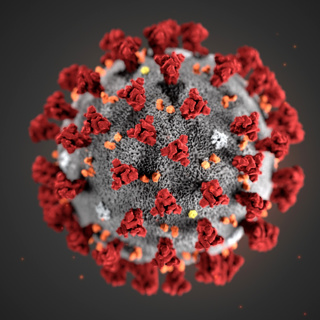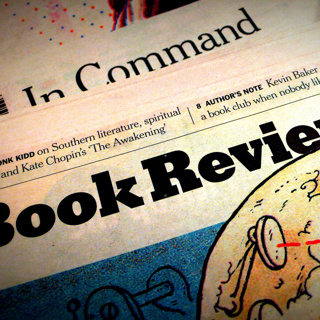
Rebel Talent
When we think about rebellious behavior in the context of organizations and companies, we tend to think of rebels as trouble-makers, rabble-rousers; in other words, people who make decisions and processes more difficult because they may not follow the established rules or norms. But rebel behavior can also be incredibly positive and constructive—in keeping us from stagnation, encouraging growth and learning, increasing curiosity and creativity.In this episode of the a16z Podcast, Harvard Business School Professor Francesca Gino, a social scientist who studies organizations, breaks down with a16z's Hanne Tidnam what makes rebels different in how they tend to see and do things—whether that’s cooking, flying planes, or holding board meetings—and what we can all learn from “rebel talent” to make our organizations more productive and innovative.
4 Feb 202033min

All about the Coronavirus
This episode of 16 Minutes on the news from a16z is all about the recent coronavirus outbreak -- or rather, a new type of coronavirus called 2019-nCoV for 2019 novel coronavirus. Since it's an ongoing and fast-developing news cycle, we take a quick snapshot for where we are, what we know, and what we don't know, and discuss the vantage point of where tech comes in. Topics covered include:definition of a virus, categories of coronavirusesorigins and spreadhow this stacks up so far against SARS and MERSspeed of sequencing, implications of genomic infospeed of information sharingR0 ("r-naught"/"nought") and what it measuresdifferent ways to think about how bad a given epidemic iscurrent moves and treatmentsOur a16z guest is Judy Savitskaya on the bio team, in conversation with Sonal Chokshi.Link sources or background readings for this episode:Centers for Disease Control and Prevention (in the U.S. Department of Health and Human Services) + typesWorld Health Organization (in the United Nations) -- situation report #6, January 26Other background readings / pieces mentioned in this episode: "Scientists are moving at record speed to create new coronavirus vaccines--but they may come too late", Jon Cohen, Science (AAAS), January 27"Clinical features of patients infected with 2019 novel coronavirus in Wuhan, China", The Lancet, January 24"Discovery of a novel coronavirus associated with the recent pneumonia outbreak in humans and its potential bat origin", bioRxiv, January 2 *note - preprint, NOT peer reviewed*"The deceptively simple number sparking coronavirus fears", Ed Yong, The Atlantic, January 28 *this appeared AFTER this episode was recorded, so sharing here as additional reading only*image: CDC
30 Jan 202019min

The Truth about 1000 True Fans + Pricing Our Attention
The idea of "1000 true fans" -- first proposed by Kevin Kelly in 2008 and later updated for Tools of Titans -- argued that to be a successful creator, you don’t need millions of customers or clients, but need only thousands of true fans. Such a true, diehard fan "will buy anything you produce", and as such, creators can make a living from them as long as they: (1) create enough each year to earn profit from each fan, plus it's easier and better to give existing fans more; (2) have a direct relationship with those fans, which the internet (and long tail) now make possible.But patronage models have been around forever; what's new there? How has the web evolved; and how are media, and audiences/voices finding and subscribing to each other changing as a result? If the 1000-true-fans concept is also more broadly "useful to anyone making things, or making things happen" -- then what nuances do people often miss about it? For instance: That there are also regular fans in the next concentric circle around true fans, and that the most obscure node is only one click away from the most popular node.Finally -- when you combine this big idea with another idea Kelly proposed in his most recent book The Inevitable (covered previously on this episode) on inverting attention economies so audiences monetize their attention vs. the other way around, how do we connect the dots between them and some novel thought experiments? In this hallway-style episode of the a16z Podcast, which Sonal Chokshi recorded with Kevin in our pop-up podcast booth at our most recent a16z Summit, we discuss all this and more. Because on average, we all currently surrender our attention (whether to TV, books, or whatever) for about $3 an hour. Whoa?! image: whatleydude/Flickr
27 Jan 202015min

Writers Writing, Readers Reading, Creators Creating
We've been financing good writing with bad advertising -- and "attention monsters" (to quote Craig Mod) for way too long. So what happens when the technology for creators finally falls into place? We're finally starting to see shift in power away from publications as the sole gatekeepers of talent, towards individual writers. Especially when the best possible predictor of the value of a piece of writing is, well, the writer. The publication's brand is no longer the guarantee of quality, or the only entity we should be paying and be loyal to, when a new ecosystem is forming around the direct relationship between consumers, content creators, and the tools and business models to facilitate all this.So where do readers come in... how do they find signal in the noisy world of drive-by billboard advertising, "attention-monster" feeds, and the death of Google Reader? Particularly as machine learning-based translation, summarization, and other mediums beyond text increasingly enter our information diets, for better and for worse?This episode of the a16z Podcast features Robert Cottrell, formerly of The Economist and Financial Times and now editor of The Browser (which selects 5 pieces of writing worth reading delivered daily); Chris Best, formerly CTO of Kik and now co-founder and CEO of Substack (a full-stack platform for independent writers to publish newsletters, podcasts, and more); and Andrew Chen, formerly independent blogger/ newsletter publisher, now also an a16z general partner investing in consumer -- all in conversation with Sonal Chokshi. The discussion is all about writing and reading... but we're not just seeing this phenomenon in newsletters and podcasting, but also in people setting up e-commerce shops, video streaming, and more. Is it possible that the stars, the incentives, are finally aligning between creators and consumers? What happens next, what happens when you get more than -- and even less than -- "1000 true fans"? image: Thad Zajdowicz/ Flickr
27 Jan 202040min

What's Next for the Internet?
How can we evolve the web for a better future? Has the web become a mature platform — or are we still in the early days of knowing what it can do and what role it might have in our lives? Just as “social/local/mobile” once did, what are the new trends — like crypto and blockchain networks and commerce everywhere — that might converge into new products and experiences?Chris Dixon (general partner at a16z and co-lead of the a16z crypto fund) discusses all things internet with Jonah Peretti (founder and CEO of BuzzFeed). Their conversation ranges from the early days of the web to the way innovation happens (what Chris calls “outside-in vs inside-out”) to the promise of a community-owned and operated internet, and more.Together they explore the possibilities that could co-evolve and converge are we enter into the next era of the web, and they share how we might not be quite as far removed from the “wild west days” of the internet as we imagined.
19 Jan 202041min

Controlling AI
AI can do a lot of specific tasks as well as, or even better than, humans can — for example, it can more accurately classify images, more efficiently process mail, and more logically manipulate a Go board. While we have made a lot of advances in task-specific AI, how far are we from artificial general intelligence (AGI), that is AI that matches general human intelligence and capabilities?In this podcast, a16z operating partner Frank Chen interviews Stuart Russell, the Founder of the Center for Human-Compatible Artificial Intelligence (CHAI) at UC Berkeley. They outline the conceptual breakthroughs, like natural language understanding, still required for AGI. But more importantly, they explain how and why we should design AI systems to ensure that we can control AI, and eventually AGI, when it’s smarter than we are. The conversation starts by explaining what Hollywood's Skynet gets wrong and ends with why AI is better as "the perfect Butler, than the genie in the lamp."
16 Jan 202026min

Food, Drugs, and Tech—100 Years of Public Health
The federal agency known as the FDA, or the Food and Drug Administration, was born over 100 years ago—at the turn of the industrial revolution, in a time of enormous upheaval and change, and rapidly emerging technology. The same could be said to be just as true today. From CRISPR to synthetic biology to using artificial intelligence in medicine, our healthcare system is undergoing massive amounts of innovation and change. Covering everything from gene-editing your dog to tracking the next foodborne outbreak, this wide-ranging conversation between Principal Commissioner of the FDA Amy Abernethy and Vijay Pande, GP on the Bio Fund at a16z, discusses how the agency is evolving to keep pace with the scientific breakthroughs coming, while staying true to its core mission of assessing safety and effectiveness for consumers in the world of food and medicine. Highlights:What the FDA looks like today and the key steps of the FDA process to getting a drug/product to market [2:20] How to manage a culture when mitigating risk is a top priority while aiming to innovate for the future [5:22] Creative problem-solving in times of crisis, such as the Opioid crisis [9:58] Preparing for and preventing drug shortages at scale [13:30] How advances in bioengineering are transforming healthcare [16:00] How the FDA is thinking about n=1 therapies and its applications in the future [18:54] The future of healthcare privacy [26:10] The ways the clinical trial process are shifting [29:26] Innovations in Bioengineering as they relate to regulating food in the future [36:02] How the FDA handles foodborne illnesses and its plans to innovate food safety [39:12] Discussion about the next 100 years of the FDA [41:25]
14 Jan 202044min

On Pharma Trends and Big Company Innovation
How does the world’s largest producer of medicines in terms of volume balance the science and the business of innovation? How does an enterprise at such vast scale make decisions about what to build vs. buy, especially given the fast pace of science today? How does it balance attitudes between “not invented here” and “not invented yet”?Vas Narasimhan, CEO of Novartis, sat down with a16z bio general partners Jorge Conde and Vijay Pande, and editor in chief Sonal Chokshi, during the JP Morgan Healthcare Conference around this time last year, to discuss the latest trends in therapeutics; go to market and why both big companies and bio startups need to get market value signals (not just approvals!) from payers earlier in the process; clinical trials, talent, leadership, and more in this rerun of the a16z Podcast. image: Global Panorama/ Flickr
11 Jan 202059min






















